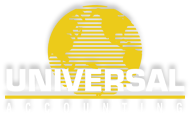When Should I Network
The fundamental recipe for success in networking is to take advantage of every business, sporting and social activity as a base from which to build your network. Some of us are sales-averse, feeling that when we approach someone with the intent of selling something to them that we are pushing something on them that they don’t want. The fact is that if you offer Accounting and Bookkeeping services, you offer something that MOST small business owners want. Most small business owners would rather engage in tasks that help to build their business and increase sales than do their own business books. As you do more sales, you will see that what you offer is a desirable product, one that you need not apologize for offering at a fair price. Before you can sell someone else on your services, you must sell yourself. Once you know that what you offer is a good and desired service, much of your hesitancy to network will disappear.
 Become a Good Networker
Become a Good Networker
Here are some tips that may assist you to become an even more successful networker:
Body Language and Facial Expressions
Your body language is critical. It has been said that most communication between two people is non-verbal. We pick up on all kinds of cues, from nervous fidgeting, which often shows a lack of confidence, to folding one’s arms when they are in a guarded or non-receptive mood.You need to put on a happy face and look people in the eye. Direct eye contact tells others that you are concentrating on them and that they are important to you. There is nothing more transparent that the person who, while engaged in a conversation, is busily scanning the room for a more important contact.
Know Your Client
If you truly want to impress upon a potential client that they are important to you, do your homework on them and their interests. A good example of this principle is Theodore Roosevelt. Guests of President Roosevelt were often astonished at his range of knowledge that spanned everything from raising cattle to politics. How did he do it? The night before he was to meet someone, he would stay up learning what he could about the person, their hobbies and interest, and so on. When we speak of things that we enjoy, we automatically tend to drop our guard and become enthusiastically engaged in the conversation. Someone who shares a hobby or interest of ours will be seen as more of a friend than a business contact. If it is a job that you are interviewing for, be sure to know about the company that you are applying to and a bit about what they produce and even a bit about the history of the company. While it has become a trite phrase, the following is still very true, “People don’t care how much you know until they know how much you care.”If you know the names of people who will be attending a function but you haven’t met them before, do your homework. It’s not a difficult task to research someone’s background with a little internet surfing with a search engine such as Google or Yahoo. If you know the name of the company that they work for, go to the company’s Web site and do a bit of detective work to see what the company sells or the service that they provide and you may even find the company mission statement on their site, which indicates the direction that management intends for the company.
Be Ready to Sell Yourself … Anytime
Always have your “30 second commercial” or “elevator speech” ready. This is where you prepare a short statement about what service that you provide, which can ideally be presented in 30 seconds. As you network in various informal settings, you will get the opportunity to use it frequently but it must sound natural rather than “canned”. When someone asks what it is that you do, having your elevator speech ready can prevent a lot of awkward silence as you attempt to put into words your value proposition. Make sure that you include a benefit in your statement, telling what service you do for others and why it might be important to them or one of their associates.
You Must Listen to Be Heard
Listening is an acquired talent and it’s one that you will call on in the course of networking. You must not only listen but also, make it abundantly clear that you’re interested in what your contact is actually saying to you. Listening and hearing are VERY different activities. Listening is an active thing, where you are not only storing away what a person says to you, but one in which you are analyzing what they are saying and why. Dr. Sigmund Freud stated that nobody does anything without a reason. The things that potential clients say are triggered by what they are thinking. Listening will also involve analysis of the client’s body language and their tone of voice, among many other non-verbal cues. Store these away as well.When it comes to listening, we often are focused only superficially on what others are saying. We listen to get enough information to know what we will say next and how to spin it to our advantage. We may view this as a large part of the sales process, but unless we slow down enough to really understand what it is that the other person has for opinions and concerns, we will never know the correct approach to take with them. Also, when we listen attentively, we are showing that what the other person thinks has value to us, that they have value to us.
Your Business Card
Don’t make it difficult to locate your business card at the appropriate moment. You should ensure that you have an adequate supply available in the same position – a shirt or coat pocket or handbag. Brian Tracy, a well-known and successful salesman, teaches that you should have something to hand a contact. When you leave your business card with someone, it gives them a chance to internalize your name and/or the name of the business that you represent. When we give someone our name at the beginning of a conversation, typically they will not even really hear it, much less remember it later. As you hand them your card, normally a contact will take a second to look at the card, and often they will look at it once you part. This gives them a chance to get your name, to see you logo, and you can even put a short sales “tag line” on the card to tell what it is that you do. Ideally, you may have your picture on the card as well so that the contact puts a name with a face. Your business card is an ideal way to be remembered when you leave.
Their Business Card
If you meet a potential client in a setting where you do not know that you will be meeting in advance, such as on a plane, while shopping, etc., it is much to your advantage to ask the other person for their business card. It gives the impression that you are interested in them and what they do, and sets some expectation that you may follow up with them. After the contact with your potential client, jot down a few notes on the back of the business card for later reference. If they mentioned an interest in a sport or hobby, you may be able to reference that in later correspondence to help break the ice by talking about something less formal to start with.
Personal Contact After the Meeting
Don’t forget the follow-up. An email or note indicating how pleased you were to have had the opportunity to meet and chat to a new contact goes a long way towards cementing the relationship into something more long-term. Follow-up shows that you are not only polite, but are truly interested in the contact.
Conclusion
Networking starts with basic conversations. It’s where those conversations lead which determines how successful you are in the gentle art of networking. When you are sold on your own product or service, you can sincerely approach prospective clients from the standpoint of solving a problem for them, even if it was not even a perceived need when you first met. Giving the personal touch to show how important that a contact is will go a long way towards converting casual associates into leads which will result in increased profitability for you.Module 4 of the Professional Bookkeeper Course teaches marketing strategies to make your Accounting and Bookkeeping Service profitable.Learn More About What Module 4 of Our Accounting and Bookkeeping Course Teaches About Marketing Your Business
Share this post: on Twitter on Facebook on Google+

 Become a Good Networker
Become a Good Networker


